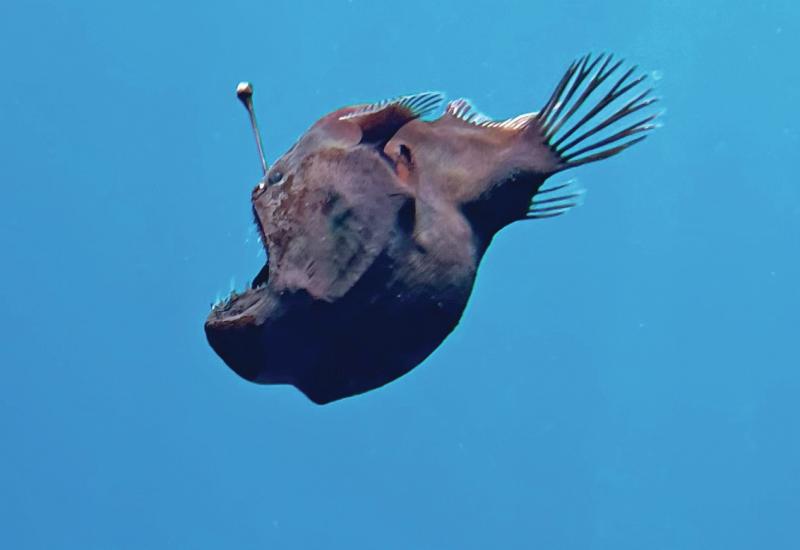Texas Law Could Sink the Sale of Shark Fins

Shark Fin Soup
Courtesy shutterstock.com
Shark fins could be permanently off the menu in Texas if new legislation is passed.
The House tentatively passed House Bill 1579 by state Rep. Eddie Lucio III, which would make it illegal to buy or sell shark fins in Texas. The aim of the bill is to curb the brutal fishing practice of finning, which consists of catching sharks, cutting off their fins and tossing them back into the sea to die.
“From a humane standpoint, this is the worst thing you can do to this animal,” Lucio said at a committee hearing last month, as reported by the Texas Tribune. “The fish essentially drowns because it has no ability to move or swim or do the things it needs to do in order to breathe properly.”
Shark fins are primarily used for shark fin soup, a Chinese dish believed to bring good luck. In Texas, some restaurants serve the soup for around $10, but most fins caught by fishermen are shipped to China, where a bowl of soup has the potential to sell for more than $100.
If this proposal becomes law, Texas would be the first red state to ban the trade. Lucio attempted to pass a similar bill through the House in 2013, but didn't make it past Senate when Sen. Troy Fraser, who led the opposition, argued that fishermen who catch the sharks should be able to sell any part of the shark. However, if the current bill becomes law, buying or selling shark fins will become a Class B Misdemeanor, punishable by fine and possible jail time.
“The impact on sharks worldwide is much more significant, we believe, than the impact on a very small number of individuals in Texas,” said Oceana lobbyist Beckie Zisser in a Texas Tribune statement.
Since 2010, the Texas shark fin market has grown by 240 percent when nine states – California, Oregon, Washington, Hawaii, Illinois, Maryland, Delaware, New York and Massachusetts – banned the trade.
“Right now, about half of the remaining shark fin trade in the U.S. comes in and out of Texas,” said Amanda Keledjian to the Tribune. Keledijan is a marine scientist at Oceana.
Shark Finning Facts:
- In 2010, the Shark Conservation Act was signed by President Obama, which tightened the ban on shark finning by requiring fishermen to land sharks with their fins still attached.
- Millions of sharks are killed each year just to supply consumers with the demand for shark fin soup.
- Shark finning is widespread, largely unmanaged and unmonitored.
- Finning threatens the stability of marine ecosystems.
- The fins from more than 20 million sharks move through the Hong Kong shark fin markets alone, each year.

Courtesy shutterstock.com
Shark fins could be permanently off the menu in Texas if new legislation is passed.
The House tentatively passed House Bill 1579 by state Rep. Eddie Lucio III, which would make it illegal to buy or sell shark fins in Texas. The aim of the bill is to curb the brutal fishing practice of finning, which consists of catching sharks, cutting off their fins and tossing them back into the sea to die.
“From a humane standpoint, this is the worst thing you can do to this animal,” Lucio said at a committee hearing last month, as reported by the Texas Tribune. “The fish essentially drowns because it has no ability to move or swim or do the things it needs to do in order to breathe properly.”
Shark fins are primarily used for shark fin soup, a Chinese dish believed to bring good luck. In Texas, some restaurants serve the soup for around $10, but most fins caught by fishermen are shipped to China, where a bowl of soup has the potential to sell for more than $100.
If this proposal becomes law, Texas would be the first red state to ban the trade. Lucio attempted to pass a similar bill through the House in 2013, but didn't make it past Senate when Sen. Troy Fraser, who led the opposition, argued that fishermen who catch the sharks should be able to sell any part of the shark. However, if the current bill becomes law, buying or selling shark fins will become a Class B Misdemeanor, punishable by fine and possible jail time.
“The impact on sharks worldwide is much more significant, we believe, than the impact on a very small number of individuals in Texas,” said Oceana lobbyist Beckie Zisser in a Texas Tribune statement.
Since 2010, the Texas shark fin market has grown by 240 percent when nine states – California, Oregon, Washington, Hawaii, Illinois, Maryland, Delaware, New York and Massachusetts – banned the trade.
“Right now, about half of the remaining shark fin trade in the U.S. comes in and out of Texas,” said Amanda Keledjian to the Tribune. Keledijan is a marine scientist at Oceana.
Shark Finning Facts:
- In 2010, the Shark Conservation Act was signed by President Obama, which tightened the ban on shark finning by requiring fishermen to land sharks with their fins still attached.
- Millions of sharks are killed each year just to supply consumers with the demand for shark fin soup.
- Shark finning is widespread, largely unmanaged and unmonitored.
- Finning threatens the stability of marine ecosystems.
- The fins from more than 20 million sharks move through the Hong Kong shark fin markets alone, each year.










